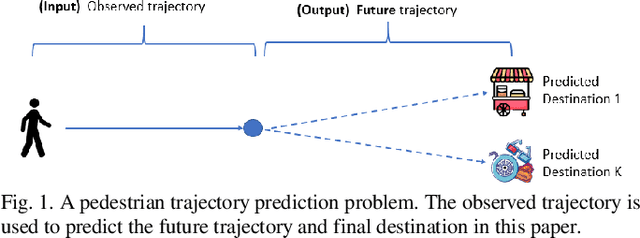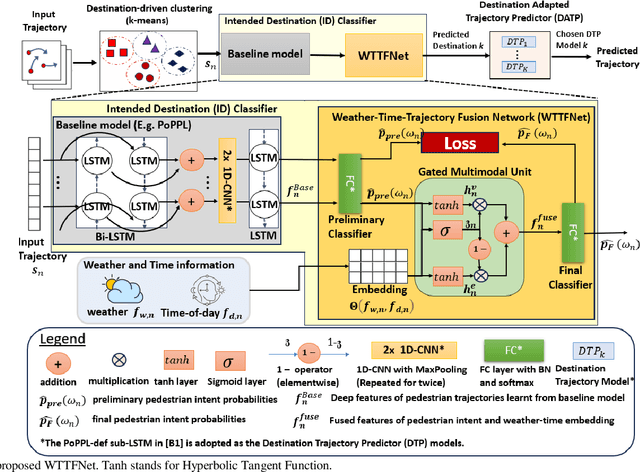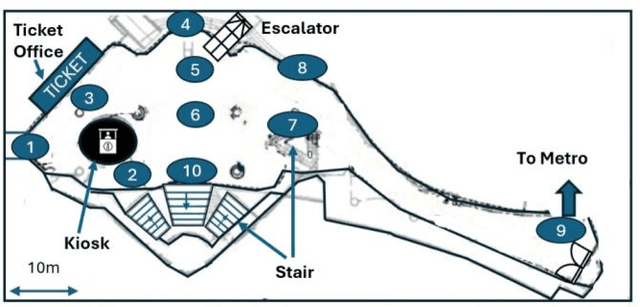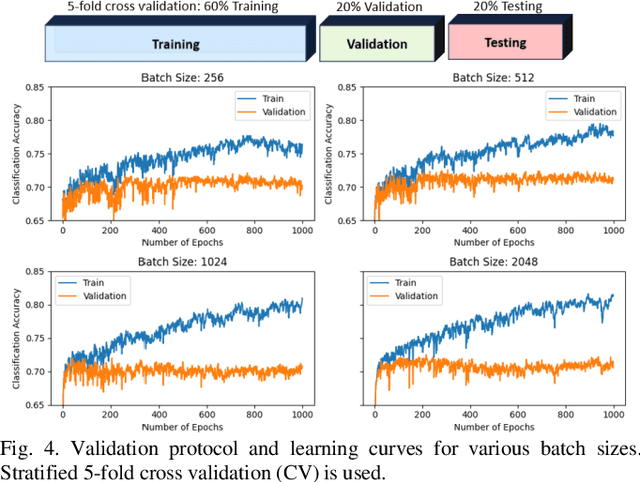WTTFNet: A Weather-Time-Trajectory Fusion Network for Pedestrian Trajectory Prediction in Urban Complex
Paper and Code
May 29, 2024



Pedestrian trajectory modelling in an urban complex is challenging because pedestrians can have many possible destinations, such as shops, escalators, and attractions. Moreover, weather and time-of-day may affect pedestrian behavior. In this paper, a new weather-time-trajectory fusion network (WTTFNet) is proposed to improve the performance of baseline deep neural network architecture. By incorporating weather and time-of-day information as an embedding structure, a novel WTTFNet based on gate multimodal unit is used to fuse the multimodal information and deep representation of trajectories. A joint loss function based on focal loss is used to co-optimize both the deep trajectory features and final classifier, which helps to improve the accuracy in predicting the intended destination of pedestrians and hence the trajectories under possible scenarios of class imbalances. Experimental results using the Osaka Asia and Pacific Trade Center (ATC) dataset shows improved performance of the proposed approach over state-of-the-art algorithms by 23.67% increase in classification accuracy, 9.16% and 7.07% reduction of average and final displacement error. The proposed approach may serve as an attractive approach for improving existing baseline trajectory prediction models when they are applied to scenarios with influences of weather-time conditions. It can be employed in numerous applications such as pedestrian facility engineering, public space development and technology-driven retail.
 Add to Chrome
Add to Chrome Add to Firefox
Add to Firefox Add to Edge
Add to Edge